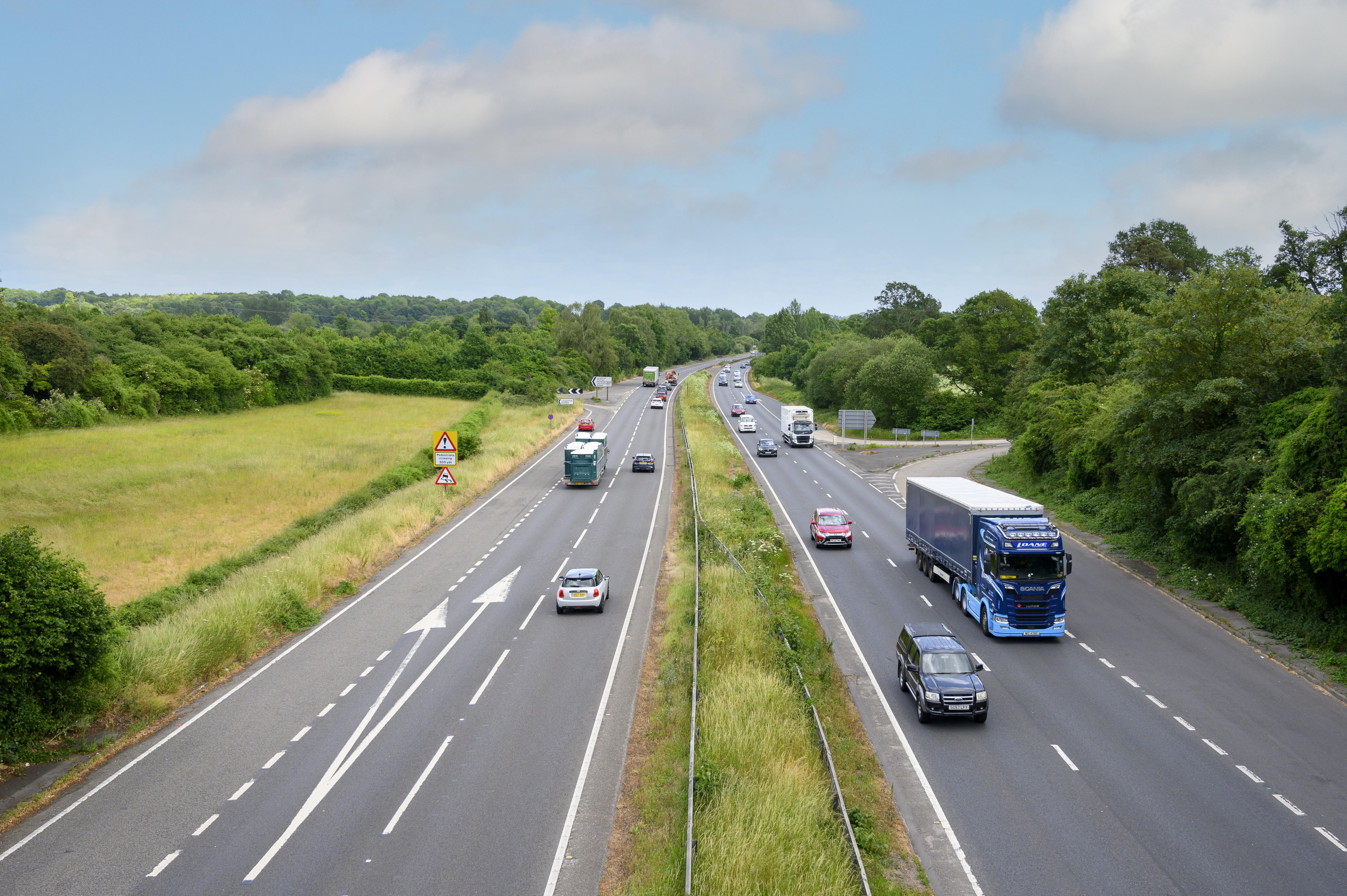
The UK government has a legally binding target for net zero in the UK by 2050, where any greenhouse gas emitted is equal to or less than greenhouse gases removed from the environment. National Highways published its net zero highways strategy in August 2021 which included commitments to reach net zero corporate emissions by 2030, net zero construction and maintenance emissions by 2040 and net zero road user emissions by 2050.
ORR holds National Highways to account to meet its target of a 67% reduction in corporate carbon emissions by 2025 compared to 2017-18 levels. Corporate carbon emissions include:
- electricity to light and power the strategic road network
- energy to heat and power National Highways’ offices and buildings
- fleet and business travel.
Data is gathered from energy meters, National Highways’ fuel use and the carbon impact of business travel. This is calculated into tonnes of carbon dioxide equivalent, CO2e. This measure includes other greenhouse gases, such as methane and nitrous oxides, and weights them for the equivalent amount of CO2 that they would account for.
As reported in our Annual Assessment in July 2023, National Highways has reduced emissions by 50% compared to 2017-18, but performance was worse than expected due to slower delivery of plug-in hybrid vehicles for its traffic officer and corporate fleet.
In June 2023, the Department for Net Zero and Energy Security, published its annual update to UK Government GHG conversion factors for company reporting. The carbon intensity of UK electricity – the amount of CO2 emitted per unit of electricity – increased in 2022 by 7% compared to 2021. This will make it more challenging for National Highways to achieve its carbon emission reduction target, as the electricity grid is not decarbonising as fast as forecast by government at the start of the road period.
ORR continues to challenge National Highways’ on its electricity usage, the largest contributor to corporate carbon emissions, and the company’s programme to install LED streetlights across its network. The LED programme is a key lever to reduce electricity use on the network. In 2022-23, the company reduced its electricity usage by 13% compared to the start of the road period, with a target reduction of 22% by 2025.
Recent data indicates that National Highways is emitting more CO2 than forecast. ORR is continuing to engage with National Highways and closely scrutinising the company’s plans to reduce its electricity use and the resulting carbon emissions on behalf of road users.


